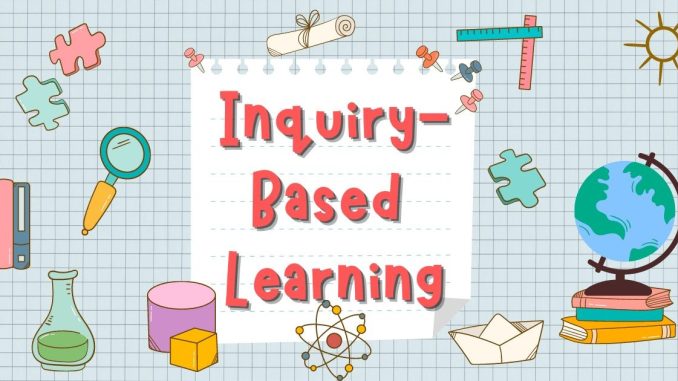
Inquiry-based learning has steadily gained traction as a transformative approach to education, offering a compelling alternative to traditional methods that often prioritize rote memorization and passive absorption of information. At its core, inquiry-based learning encourages students to ask questions, explore problems, and engage in critical thinking to construct their own understanding. This method not only deepens comprehension but also cultivates essential skills that are highly valued in the business world, such as adaptability, collaboration, and strategic thinking. By shifting the focus from teaching to learning, inquiry-based education empowers individuals to become active participants in their intellectual development.
One of the most striking benefits of inquiry-based learning is its ability to foster genuine curiosity. When students are invited to pose questions and investigate topics that interest them, they become intrinsically motivated to learn. This internal drive often leads to more sustained engagement and a richer educational experience. For example, a student intrigued by climate change might initiate a research project that spans environmental science, economics, and policy analysis. In doing so, they not only gain knowledge across disciplines but also learn how to synthesize information and draw meaningful conclusions. This kind of intellectual agility is indispensable in business environments, where professionals are frequently required to navigate complex, multifaceted challenges.
Moreover, inquiry-based learning promotes a deeper understanding of subject matter by encouraging learners to connect concepts rather than memorize isolated facts. Instead of simply recalling the steps of a marketing strategy, students might explore why certain campaigns succeed while others fail, examining variables such as consumer behavior, cultural context, and technological trends. This analytical approach mirrors the kind of thinking demanded in strategic business roles, where decisions must be informed by a nuanced grasp of multiple factors. By engaging in inquiry, students learn to ask the right questions—an ability that often distinguishes effective leaders from their peers.
Collaboration is another key dimension of inquiry-based learning. Many inquiry-driven projects involve group work, where students must communicate ideas, negotiate perspectives, and build consensus. These interactions mirror real-world business scenarios, from team-based problem solving to cross-functional project management. Through collaborative inquiry, learners develop interpersonal skills and emotional intelligence, both of which are critical for navigating the complexities of modern workplaces. They also learn how to manage conflict, delegate responsibilities, and leverage diverse viewpoints to enhance outcomes. These experiences prepare students not just to participate in teams but to lead them with empathy and effectiveness.
The iterative nature of inquiry-based learning also teaches resilience and adaptability. Inquiry often involves trial and error, where initial hypotheses may be disproven and new directions must be pursued. This process helps students become comfortable with ambiguity and failure, viewing setbacks as opportunities for growth rather than as obstacles. In business, where market conditions shift rapidly and innovation is key, the ability to pivot and persevere is invaluable. Inquiry-based learners are often better equipped to handle uncertainty, make informed decisions under pressure, and remain agile in the face of change.
Another significant advantage of inquiry-based learning is its alignment with real-world problem solving. Rather than working through textbook exercises with predetermined answers, students tackle open-ended questions that require original thought and practical application. For instance, a class might investigate how local businesses can reduce their carbon footprint, leading to proposals that integrate environmental science, logistics, and financial analysis. This kind of project not only reinforces academic concepts but also demonstrates their relevance to societal and economic issues. It bridges the gap between theory and practice, preparing students to contribute meaningfully to their communities and industries.
Inquiry-based learning also encourages self-directed learning, a trait that is increasingly important in today’s fast-paced, information-rich world. With access to vast digital resources, learners must be able to evaluate sources, discern credibility, and synthesize data independently. Inquiry-based education trains students to take initiative, manage their time effectively, and pursue knowledge proactively. These habits are particularly beneficial in business contexts, where professionals are expected to stay current, anticipate trends, and continuously refine their expertise. Self-directed learners are often more innovative and resourceful, capable of identifying opportunities and driving change within their organizations.
Importantly, inquiry-based learning nurtures a mindset of continuous improvement. Because the process emphasizes reflection and refinement, students learn to assess their own work critically and seek ways to enhance it. This iterative approach fosters a culture of excellence and accountability, which translates well into business settings. Whether developing a new product, optimizing a workflow, or crafting a marketing strategy, the ability to evaluate and improve is a hallmark of successful professionals. Inquiry-based learners are not satisfied with surface-level solutions; they dig deeper, ask better questions, and strive for impact.
In a broader sense, the benefits of inquiry-based learning extend beyond individual development to institutional and societal advancement. Schools and organizations that embrace inquiry tend to be more innovative, inclusive, and responsive to change. They create environments where diverse ideas are welcomed, experimentation is encouraged, and learning is viewed as a shared journey. This ethos can transform educational institutions into incubators of talent and creativity, and businesses into engines of progress and resilience. By fostering inquiry, we cultivate not just competent professionals but thoughtful citizens who are equipped to tackle the challenges of our time with insight and integrity.
Ultimately, inquiry-based learning represents a shift in how we understand education—not as a static transmission of facts, but as a dynamic process of exploration and growth. It aligns closely with the demands of the modern business world, where success depends on curiosity, collaboration, and critical thinking. By embracing inquiry, we empower learners to become architects of their own understanding and agents of meaningful change. In doing so, we lay the groundwork for a future where education and enterprise work hand in hand to build a more thoughtful, innovative, and resilient society.